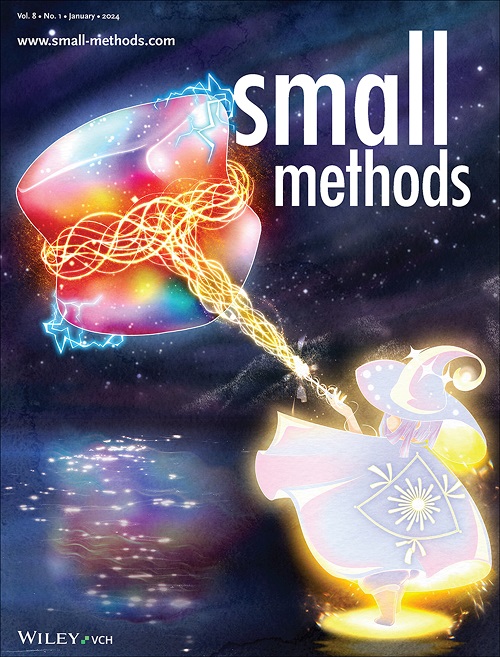Novel FRET‐based Immunological Synapse Biosensor for the Prediction of Chimeric Antigen Receptor‐T Cell Function
IF 10.7
2区 材料科学
Q1 CHEMISTRY, PHYSICAL
引用次数: 0
Abstract
Chimeric antigen receptor (CAR)‐T cell therapy has revolutionized cancer treatment. CARs are activated at the immunological synapse (IS) when their single‐chain variable fragment (scFv) domain engages with an antigen, allowing them to directly eliminate cancer cells. Here, an innovative IS biosensor based on fluorescence resonance energy transfer (FRET) for the real‐time assessment of CAR‐IS architecture and signaling competence is presented. Using this biosensor, scFv variants for mesothelin‐targeting CARs and identified as a novel scFv with enhanced CAR‐T cell functionality despite its lower affinity than the original screened. The original CAR promoted internalization and trogocytosis, disrupting stable IS formation and impairing functionality are further observed. These findings emphasize the importance of enhancing IS quality rather than maximizing scFv affinity for superior CAR‐T cell responses. Therefore, the FRET‐based IS biosensor is a powerful tool for predicting CAR‐T cell function, enabling the efficient engineering of next‐generation CARs with enhanced antitumor potency.用于预测嵌合抗原受体-T 细胞功能的基于 FRET 的新型免疫突触生物传感器
嵌合抗原受体(CAR)-T 细胞疗法彻底改变了癌症治疗。当CAR的单链可变片段(scFv)结构域与抗原结合时,CAR就会在免疫突触(IS)处被激活,从而直接消灭癌细胞。本文介绍了一种基于荧光共振能量转移(FRET)的创新 IS 生物传感器,用于实时评估 CAR-IS 结构和信号能力。利用这种生物传感器,鉴定出了间皮素靶向 CAR 的 scFv 变体,并确定了一种新型 scFv,尽管其亲和力低于原始筛选的 CAR,但却增强了 CAR-T 细胞的功能。进一步观察发现,原始 CAR 促进了内化和逆行细胞吞噬,破坏了稳定的 IS 形成并损害了功能。这些发现强调了提高 IS 质量而不是最大限度地提高 scFv 亲和力对卓越 CAR-T 细胞反应的重要性。因此,基于FRET的IS生物传感器是预测CAR-T细胞功能的有力工具,能有效地设计出抗肿瘤效力更强的下一代CAR。
本文章由计算机程序翻译,如有差异,请以英文原文为准。
求助全文
约1分钟内获得全文
求助全文
来源期刊

Small Methods
Materials Science-General Materials Science
CiteScore
17.40
自引率
1.60%
发文量
347
期刊介绍:
Small Methods is a multidisciplinary journal that publishes groundbreaking research on methods relevant to nano- and microscale research. It welcomes contributions from the fields of materials science, biomedical science, chemistry, and physics, showcasing the latest advancements in experimental techniques.
With a notable 2022 Impact Factor of 12.4 (Journal Citation Reports, Clarivate Analytics, 2023), Small Methods is recognized for its significant impact on the scientific community.
The online ISSN for Small Methods is 2366-9608.
文献相关原料
| 公司名称 | 产品信息 | 采购帮参考价格 |
|---|
 求助内容:
求助内容: 应助结果提醒方式:
应助结果提醒方式:


